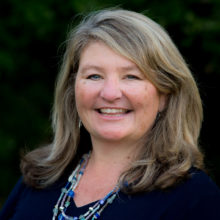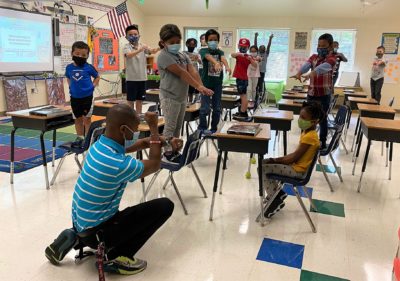
The following is Mary Ann Wolf’s “Final Word” from the April 21, 2022 broadcast of Education Matters: “Beginning Teachers.”
Do you know a high school or college student who wants to be a teacher? Do you know others in your community who are thinking about changing careers to become a teacher? We need to encourage more individuals to consider education for their careers. Our teacher pipeline has decreased significantly over the past decade, and across N.C. we are experiencing a teacher shortage in almost all areas and grade levels.
While there are undoubtedly many factors in providing and maintaining a high-quality education throughout our state, research has shown that teachers are the number one school-related factor that influences student outcomes. In order to secure the future of North Carolina’s children and our communities and economy, it is imperative that our schools are able to recruit and retain high-quality and well-prepared teachers who also bring passion and commitment to their work with students.
On this episode we were joined by our last three North Carolina Center for the Advancement of Teaching (NCCAT) Beginning Teachers of the Year, including our 2022 winner Xavier Adams of Orange County Schools, as well as 2021 and 2020 winners, Emilee Higdon of Macon County Schools and Leanne Rose of Mooresville Graded School District. You will quickly see that these attributes are present among these educators and in many of our beginning and veteran teachers across N.C. We must nurture those talents and respect these professionals. Equally important is supporting them along their journeys to becoming the most effective educators they can be.
If you ask our teachers about this year, many of our veteran teachers will tell you it has been the hardest year they have ever experienced. This is told within the context of their deep care and commitment to students. These teachers also listen to the news and the public comments at school board meetings. Many of these discussions about education locally, statewide, or nationally often center on political issues instead of what our students need and how we can support our educators to support our students. This is also exhausting to teachers as they strive to navigate the complexities of teaching, especially as we come out of the pandemic.
One thing I see again and again with our educators, including the three exceptional Beginning Teachers of the Year, is that they center the students in their daily work. They continue to try and do everything they can to understand what their students need for their learning and their well-being, and they go above and beyond every day.
As a state, we have the opportunity to show how much we understand the importance of being a teacher and how we value those who are in or are choosing to enter the field. We can provide working conditions and compensation that honor their level of education, the complexity of their work, and the impact that they have. However, to truly do this, we must also treat our educators as professionals and provide them with the respect they richly deserve. We should do this regardless of the time or the context, but we must do this now — given the significant shortage we have and will continue to experience based upon our state’s trajectory.
I asked you at the beginning of this Final Word if you know someone who is becoming or wants to be a teacher. I hope you will take this opportunity to show them how important that decision is — for our students, our families, our communities, and our economy here in N.C. We have the opportunity to ensure that those interested in or currently serving in education are treated as professionals and honored for the critical role they play.




